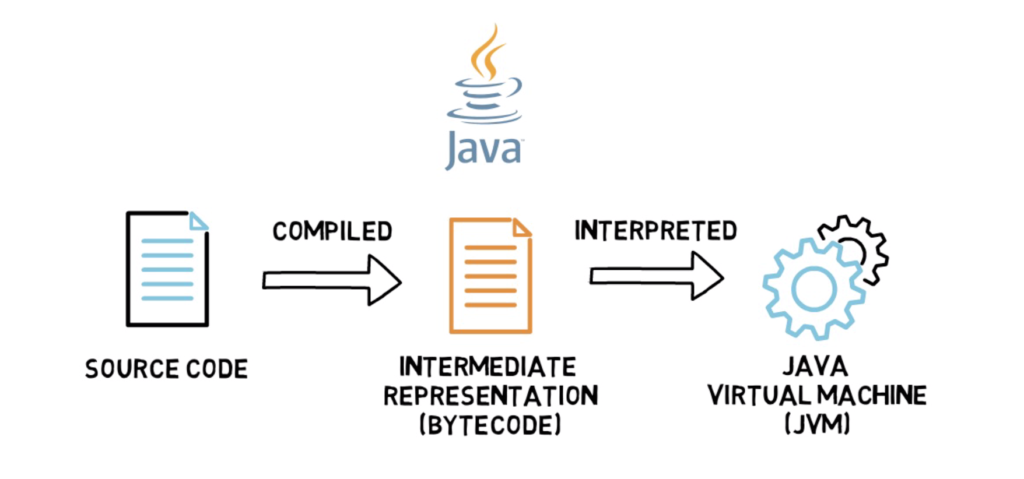When it comes to programming languages, there are two main types: compiled and interpreted. Compiled languages are those that need to be translated into machine code before they can be executed, while interpreted languages can be run directly without the need for translation. In this article, we will explore the differences between these two types of languages, and look at some of the advantages and disadvantages of each.
Compiled Languages
Compiled languages are those that are translated into machine code before they can be executed. This means that the code is transformed into an executable file that can be run directly on a computer. Some examples of compiled languages include C, C++, Java, and Swift.
The process of compiling a program involves several steps. First, the source code is transformed into an intermediate representation. This intermediate representation is then optimized to improve performance and reduce the size of the executable file. Finally, the optimized code is translated into machine code that can be executed directly by the computer.
Advantages of Compiled Languages
Faster Execution: Because the code is translated into machine code before it is executed, compiled languages tend to be faster than interpreted languages. This is because the computer can execute the code directly, without the need for additional processing.
Better Optimization: The optimization process that is performed during compilation can result in code that is better optimized for the target computer. This can lead to better performance and smaller executable files.
Strong Typing: Compiled languages typically use strong typing, which means that variables must be declared with a specific data type. This can help to catch errors early in the development process and make the code more reliable.
Disadvantages of Compiled Languages
Longer Development Time: Because the compilation process can take longer than interpreting code, the development time for compiled languages may be longer.
Harder to Debug: Because the code is translated into machine code, it can be more difficult to debug compiled programs. This is because the debugging tools are not able to access the original source code.
Interpreted Languages

Interpreted languages are those that are executed directly by the computer without the need for translation. This means that the code can be run directly from the source file. Some examples of interpreted languages include Python, JavaScript, and Ruby.
When an interpreted language is executed, the code is processed by an interpreter, which converts the source code into machine code as it is being executed. This means that the interpreter reads each line of code and executes it immediately.
Advantages of Interpreted Languages
Faster Development Time: Because there is no compilation process, interpreted languages can be developed more quickly than compiled languages. This can be especially useful for rapid prototyping and testing.
Easy to Debug: Because the interpreter can access the original source code, it is easier to debug interpreted programs. This is because the debugging tools can show the developer exactly where the error occurred in the code.
Dynamic Typing: Interpreted languages typically use dynamic typing, which means that variables do not need to be declared with a specific data type. This can make the code more flexible and easier to write.
Disadvantages of Interpreted Languages
Slower Execution: Because the interpreter must translate the code into machine code as it is being executed, interpreted languages tend to be slower than compiled languages.
Less Optimization: Because there is no compilation process, the code may not be optimized as well as it could be. This can lead to slower performance and larger executable files.
Conclusion
In conclusion, both compiled and interpreted languages have their own advantages and disadvantages. Compiled languages tend to be faster and more optimized, but can take longer to develop and debug. Interpreted languages, on the other hand, are faster to develop and easier to debug
Compiled Languages

Compiled languages are those that are translated into machine code before they can be executed. This means that the code is transformed into an executable file that can be run directly on a computer. Some examples of compiled languages include C, C++, Java, and Swift.
The process of compiling a program involves several steps. First, the source code is transformed into an intermediate representation. This intermediate representation is then optimized to improve performance and reduce the size of the executable file. Finally, the optimized code is translated into machine code that can be executed directly by the computer.
Advantages of Compiled Languages
Faster Execution: Because the code is translated into machine code before it is executed, compiled languages tend to be faster than interpreted languages. This is because the computer can execute the code directly, without the need for additional processing.
Better Optimization: The optimization process that is performed during compilation can result in code that is better optimized for the target computer. This can lead to better performance and smaller executable files.
Strong Typing: Compiled languages typically use strong typing, which means that variables must be declared with a specific data type. This can help to catch errors early in the development process and make the code more reliable.
Disadvantages of Compiled Languages
Longer Development Time: Because the compilation process can take longer than interpreting code, the development time for compiled languages may be longer.
Harder to Debug: Because the code is translated into machine code, it can be more difficult to debug compiled programs. This is because the debugging tools are not able to access the original source code.
Interpreted Languages

Interpreted languages are those that are executed directly by the computer without the need for translation. This means that the code can be run directly from the source file. Some examples of interpreted languages include Python, JavaScript, and Ruby.
When an interpreted language is executed, the code is processed by an interpreter, which converts the source code into machine code as it is being executed. This means that the interpreter reads each line of code and executes it immediately.
Advantages of Interpreted Languages
Faster Development Time: Because there is no compilation process, interpreted languages can be developed more quickly than compiled languages. This can be especially useful for rapid prototyping and testing.
Easy to Debug: Because the interpreter can access the original source code, it is easier to debug interpreted programs. This is because the debugging tools can show the developer exactly where the error occurred in the code.
Dynamic Typing: Interpreted languages typically use dynamic typing, which means that variables do not need to be declared with a specific data type. This can make the code more flexible and easier to write.
Disadvantages of Interpreted Languages
Slower Execution: Because the interpreter must translate the code into machine code as it is being executed, interpreted languages tend to be slower than compiled languages.
Less Optimization: Because there is no compilation process, the code may not be optimized as well as it could be. This can lead to slower performance and larger executable files.
Conclusion
In conclusion, both compiled and interpreted languages have their own advantages and disadvantages. Compiled languages tend to be faster and more optimized, but can take longer to develop and debug. Interpreted languages, on the other hand, are faster to develop and easier to debug
Tags
Programming
